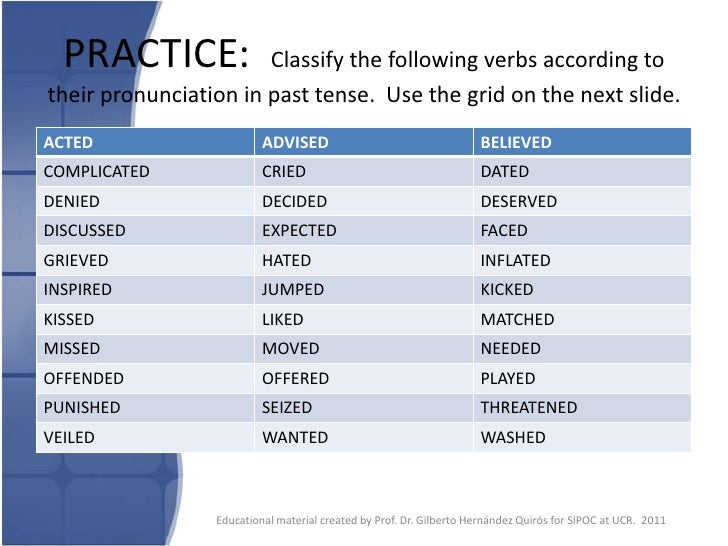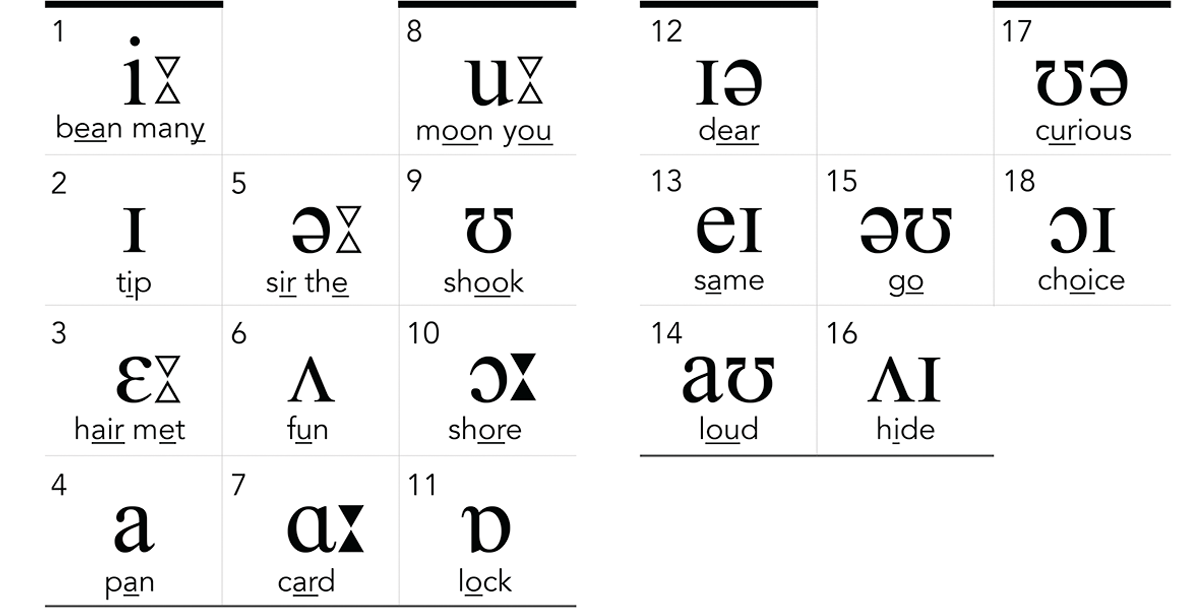English Pronunciation
& EnglishSpelling Rules
© 2007-present, by Leon of Leon's Planet
British and American English also differ in terms of spelling. Thus, British English has colour and centre, where American English has color and center. Catalogue is spelt catalog, without -ue in the end in the United States, and so on. But it is in terms of pronunciation that British and American English differ most. See Radio Programme 1. In standard British English (RP) the letter 'r' after a vowel sound at the end of word is often not pronounced. However, when the following word begins with a vowel the /r. What is pronunciation? 3 Key issues in pronunciation teaching and learning 10 Activities 23 1 Developing awareness of English pronunciation 23 1.1 Introducing features of pronunciation 23 1.2 Getting you thinking: a pronunciation questionnaire 25 1.3 Making vowel sounds 27 1.4 Consonant clusters: English and first language differences 29. Of English pronunciation, named it PUBLIC SCHOOL PRONUNCIATION (Jones 1917), but later changed the name to Received Pronunciation. Other names have been proposed, such as GENERAL BRITISH (GB) and EDUCATED SOUTHERN BRITISH ENGLISH. The present author’s own preference is for the name BBC PRONUNCIATION or BBC ACCENT (Jones, ed.
Phonics, Phonetics, Phonemics,Phonology, & Prosody
Dear Kids, Dear Parents and Teachers: It is helpful to review the content of this page multiple times (repetition is key). You may freely (and free of charge) download all the audio files on this page and freely use them to teach your child or children. Dear Webmasters: All content on this page and website is original content, produced by Leon of Leon's Planet. You may use it freely for educational purposes, but be sure to give credit where credit is due, and please link back to my site, if possible. | Dear Adults, Leon's Planet could use your support. You can do that in several ways: (1) You can like/share this page on your facebook page.
|
INTRODUCTION
to the nomenclature (for teachers):

A: Here are thedefinitions: Phonics: the science that deals with the sound of the written symbols of a language, and often the teaching thereof Phonetics: [Education] the science that deals with the segmental sounds of the spoken languagephoneme is the smallest unit of sound of a language] Phonemics:[Linguistics]the science of phonemes, and their relationships (i.e. changes based upon collocation). Prosodic Features: the 'suprasegmental' sounds (features) of a spoken language (i.e., intonation and voice quality) [ TeachYourself Intonation of English (clickhere) ] Phonology: Phonetics / Phonemics / Phonics / ProsodicFeatures ALL together; Study of sounds in languages. |
British English Pronunciation Rules Pdf
Kids, keep scrolling down.
North American Phonics by Leon © 2007-present | ||||||||||||||||||||||||||||||||||||||||||||||||||||||||||||||||||
| First of all, you need to know what the consonants and vowels are. English Vowels:a,e,i,o,u, and sometimes y, w When 'y' or 'w' appear at the beginning of a word or syllable, they are NOT vowels English Consonants: b, c, d, f, g, h, j, k, l, m, n, p, q, r, s, t, v, x, z, (and w & y if occurring at the beginning of a word or syllable) Y and W: As vowels: boy, cow As consonants: you, wool | ||||||||||||||||||||||||||||||||||||||||||||||||||||||||||||||||||
Vowel Sounds | ||||||||||||||||||||||||||||||||||||||||||||||||||||||||||||||||||
(Phonics with Audio) (IPA = International Phonetic Alphabet) (APA = American Phonetic Alphabet)
Irregular (strange) Vowel Sounds
NOTE: The schwa // sound only appears in unstressed syllables. | ||||||||||||||||||||||||||||||||||||||||||||||||||||||||||||||||||
English Spelling Rules | ||||||||||||||||||||||||||||||||||||||||||||||||||||||||||||||||||
| Rule #1: CVC rule. [CVC = Consonant-Vowel-Consonant] The vowel is short! (99% true) [in CVCC the vowel is also short] (99% true) Examples: rat, hen, sit, not, cut (click to download audio file)
Example: rate, here, site, note, cute (click to download audio file)
Examples: The con man can put a cane into a cone and a cub into a cube. 3b) Soft 'C' : When c+e OR c+i OR c+y exists, then 'c' has the /s/ sound. Examples: The city center has a circle.
Examples: Kelly keeps kissing the kite, while Kym keeps kissing Kyle. More Ex.): Kyle the king is kind, even though he is only a kid. What about K + a, o, u?!!! Words that have k + a,o,u are 'loan words' from other languages. Examples: kangaroo (Aus.Aboriginal word), Korea (Korean word), kung fu (Chinese word)
Examples: The bad guy got a gun and put a gag on the gal. 3b) Soft 'G' : When g+e OR g+i OR g+y exists, then 'g' has the /j/ sound. Examples: The gentle gypsy put gel in her hair, then gyrated her hips.
Why? Because 'C' has a friend named, 'K', but 'G' has nobody, nobody, but you!
NOTE: there are many exceptions to this rule. ALSO: Occasionally, there may be a single consonant after a short vowel sound. It drives me crazy.
Examples: he, me, we, hi, go, no, so, flu, Katmandu, and Timbuktu. Some super weird exceptions: to, do, ma, pa, ska, bla, bla, bla
Rule #9: Change the 'y' to 'i' and add 'es'/'er'/'est' Explanation: If there is a vowel before the 'y', as in 'day', just add 's' (days). Examples: day-days, play-plays, way-ways, toy-toys, boy-boys Explanation: If there is a consonant before the 'y', as in 'try', change the 'y' to 'i' and add 'es'. Examples: try-tries, cry-cries, dry-dries, fly-flies, sky-skies, country-countries Explanation: Change the 'y' to 'i' and add 'er' or 'est' Examples: happy-happier-happiest; funny-funnier-funniest; pretty-prettier-prettiest; dirty-dirtier-dirtiest Rule #10: Change the 'f' to 'v' and add 'es' Explanation: If there is an 'f' at the end of a word, we make it plural by changing the 'f' to 'v' and add 'es'. Examples: calf-calves, half-halves, wolf-wolves, wife-wives, knife-knives Rule #11: Change the 'y' to 'i' and add 'ed' or 'ing' Explanation: If there is a vowel before the 'y', just add 'ed' or 'ing'. Examples: play-played-playing, destroy-destroyed-destroying Explanation: If there isn't a vowel before the 'y', change the 'y' to 'i' & add 'ed' (but not for 'ing'). Examples: dry-dried-drying, cry-cried-crying, try-tried-trying Exceptions: fly-flew-flying Rule #12: Change the 'ie' to 'y' when adding 'ing' Explanation: If the verb ends in 'ie', change the 'ie' to 'y' when adding 'ing'. Examples: die-died-dying, Exceptions: lie-lay-lain (to put one's self in horizontal position on the floor or ground) | ||||||||||||||||||||||||||||||||||||||||||||||||||||||||||||||||||
Consonants | ||||||||||||||||||||||||||||||||||||||||||||||||||||||||||||||||||
| Part 2: Digraphs (Ch & Th) The symbols that we use for English today are from the Roman language. Yet English contains words from Old English, Middle English, German, Latin, Greek, Arabic, Italian, and French. This makes English pronunciation quite complicated. Of course, all of Europe uses Roman symbols, but the Romanization of each language is quite different from one country to another. Sometimes digraphs were invented to represent consonant sounds, which don’t exist in Latin. For example, Latin doesn’t have the // sound. In English, we represent this sound with the digraph “Sh.” In French, the same sound is represented with the digraph “Ch.” Sometimes digraphs were invented to distinguish the origin of the word. For example, the Greek letter /x/ (spelled: ‘chi’, pronounced, /kai/) is transliterated as the digraph “Ch,” but it sounds like /k/. Why did they do this? I don’t know. It really makes things confusing. So in English, the digraph “Ch” has three sounds, depending on the origin of the word. See table below. 1. “Ch” Rule(s) Original English words, which begin with 'ch' are pronounced like ' Greek-English words, which begin with 'ch' are pronounced like a 'k'. French-English words, which begin with 'ch' are pronounced like ' Examples:
NOTE: there are some exceptions, like the English word 'channel' is from French, but it has the pure-English pronunciation.
There are TWO 'th' sounds: / / & / /. Notice that the latter symbol looks much like a 'd'. That's because it sounds much like a 'd', and many non-native English speakers (or Pidgin/Creole speakers), will substitute the 'd' sound for the sound. The former symbol looks unlike any other alphabetical letter in English (or Roman), and that's because it is unlike any other sound in English (or Roman). Since the symbol is a Greek symbol, many words with that sound are from Greek (but not all). Look at the diagrams (below) of the articulations of , , and d...
In the first diagram, we see that the tongue is clenched tightly between the teeth, blocking all air from going in or out. Then, the tongue is drawn in very quickly, and by the laws of physics, air must go out, but also combined the intercostal muscles in the chest contracting, a very strong, almost plosive wind comes out of the mouth. (some say it is a fricative, but I firmly believe it to be a plosive). In the second diagram, the tongue is pressed up against the back of the upper teeth and alveolar ridge. Like the , the initial articulation blocks the would-be hole between the open teeth, not allowing any air to go in or out. BUT, unlike the , the movement forces the tongue out of the mouth between the teeth (slowly), and then slowly the tongue goes back in and down. Because of the slow movement of the tongue, it is labeled a fricative. In the third diagram, we see that the 'd' movement is almost identical to the movement, except that the tongue doesn't actually leave the mouth. The initial articulations are different as well, but not far apart, which would account for the similarity in sound. In fact, many native speakers will use the 'd' sound in place of the sound, when trying to be funny. Example: 'Duh Bears!' (Chicago Bears are a football team, and Chicagoans will often call them 'Duh Bears!'). Also, many non-native English speaker, which speak a Creole of English, like in Jamaica, will use the 'd' sound in place of the ; AND, they will use the 't' sound in place of the sound. This works well, because both 'd' and are fricatives, and both 't' and are plosives. | ||||||||||||||||||||||||||||||||||||||||||||||||||||||||||||||||||
Vowel Teams | ||||||||||||||||||||||||||||||||||||||||||||||||||||||||||||||||||
| Part 3: Vowel Teams (or Vowel Strings) with more than 1 sound 'ea' (short e sound); bread, breath, dead, death, head, lead, read, wealth, 'ea' (long e sound); bead, beat, breathe, eat, feat, heat, lead, leak, meat, neat, read, treat, weak, wheat 'ea' (long a sound); break, great, steak 'ew' ( /u:/ ); dew, blew, chew, crew, flew, grew, knew, lewd, mew, stew, 'ew' ( /ju:/ ); few, new, pew 'oo' (short sound //); book, foot, good, hood, hook, look, nook, rook, soot, took, wood, 'oo' ( /u:/ ); balloon, boot, cartoon, goose, loose, moose, loop, loot, moon, noon, poop, root, stoop, toon, toot, 'oo' (schwa sound //); blood, flood 'oo' (long o sound); boor, floor, door, moor 'ou' ('au' 'short' sound); bough, grouse, house, louse, mouse, plough 'ou' ('ou' 'long' sound); though 'ou' (schwa sound //); enough, rough, tough 'ow' ('au' 'short' sound); brown, cow, how, now, wow 'ow' ('ou' 'long' sound); blow, flow, grow, know, low, sow, tow, |

If you would, please help support Leon's Planet.
Way #1: Donate on PayPal

American English Pronunciation Rules Pdf Download
Way #2: Buy stuff on amazon.
Support Leon's Planet by buying stuff on... You don't have to buy the item advertised. Just by clicking on the advertisement banner and then browsing through Amazon to find the exact item that you want, Leon's Planet will get a percentage of the proceeds. It's a win-win-win. You get awesome deals. Amazon gets customers. Leon's Planet gets a little stipend. |